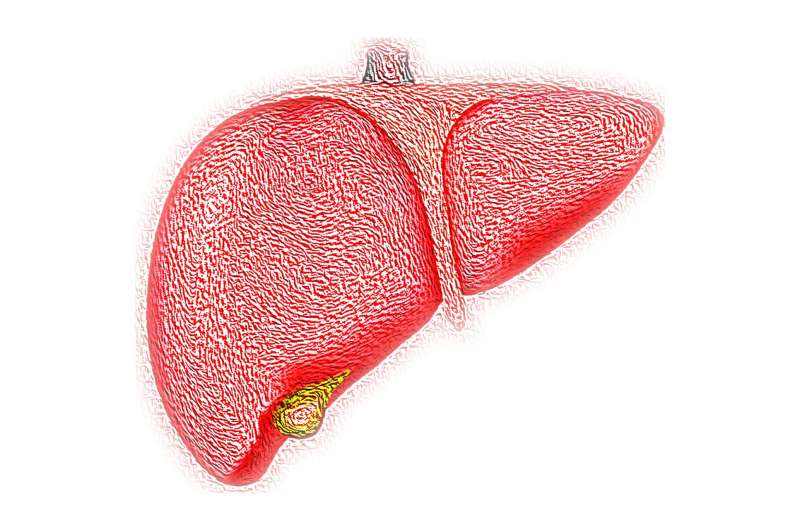This article has been reviewed according to Science X's editorial process and policies. Editors have highlighted the following attributes while ensuring the content's credibility:
fact-checked
peer-reviewed publication
trusted source
proofread
Popular diabetes drug may also reduce the risk of severe liver disease

Ozempic and other GLP1 agonists are associated with a reduced risk of developing cirrhosis and liver cancer in people with type 2 diabetes and chronic liver disease, according to a nationwide study from Karolinska Institutet in Sweden published in the journal Gut.
GLP1 agonists like Ozempic reduce blood sugar levels and are mainly used to treat type 2 diabetes. However, as the drug also reduces appetite, it is now increasingly used to treat obesity and has become a popular weight-loss drug.
Reduced risk of liver damage
Results from early clinical trials also suggest that GLP1 agonists may reduce the risk of liver damage. Therefore, researchers at Karolinska Institutet included all people in Sweden with chronic liver disease and type 2 diabetes in a register-based study. They then compared the risk of severe liver damage in those who were treated with GLP1 agonists and those who were not. The results show that those who took the drug for a long period of time had a lower risk of later developing more severe forms of liver disease such as cirrhosis and liver cancer.
According to the researchers, this suggests that GLP1 agonists could be an effective treatment to avoid severe liver disease in people with concurrent type 2 diabetes.
"Fatty liver disease is estimated to affect up to one in five people in Sweden, many of whom have type 2 diabetes, and about one in twenty develop severe liver disease," says first author Axel Wester, assistant professor at the Department of Medicine, Huddinge, Karolinska Institutet. "Our findings are interesting because there are currently no approved drugs to reduce this risk."
Many of the people in the study stopped taking GLP1 agonists, resulting in a lack of protective effect. However, those who continued taking their medication over a ten-year period were half as likely to develop severe liver disease.
Results need to be confirmed
"The results need to be confirmed in clinical trials, but it will take many years for these studies to be completed," says Axel Wester. "Therefore, we use existing registry data to try to say something about the effect of the drugs before that."
A limitation of the method is that it is not possible to control for factors for which there is no data, such as blood tests to describe the severity of liver disease in more detail. However, the researchers have recently built a new database called HERALD where they have access to blood samples from patients in Region Stockholm.
"As a next step, we will investigate the effect of GLP1 agonists in this database," says the study's last author Hannes Hagström, consultant in hepatology at the Karolinska University Hospital and adjunct professor at the Department of Medicine, Huddinge, Karolinska Institutet. "If we get similar results, it would further strengthen the hypothesis that GLP1 agonists can be used to reduce the risk of severe liver disease."
More information: Axel Wester et al, Glucagon-like peptide-1 receptor agonists and risk of major adverse liver outcomes in patients with chronic liver disease and type 2 diabetes, Gut (2024). DOI: 10.1136/gutjnl-2023-330962



















